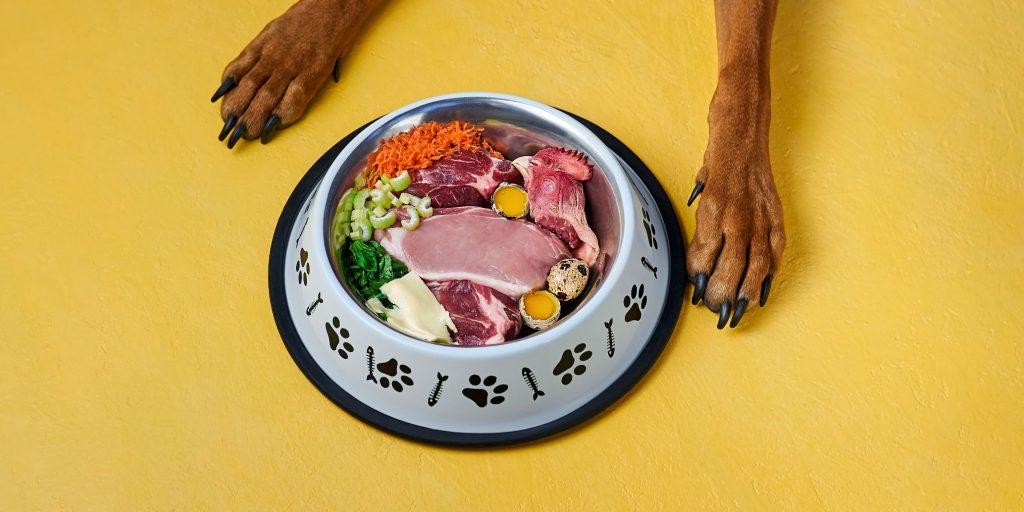We all have heard the saying “you are what you eat.” Nutrition is definitely important and an essential part of taking care of your pet, but choosing your pet’s food can be a daunting task. There are a lot of choices out there from raw dog food to home-cooked to human grade ingredients. One question that we get asked a lot at Clairmont Animal Hospital is whether or not to feed organic dog food. Read on to learn our answer.
The Definition of Organic Dog Food
More and more, Americans are making the choice to eat organic. There are, however, a lot of misconceptions as to what the word means.
According to the USDA, organic is simply a labeling term that means that the food has been produced according to their standards. These standards involve the wise use of resources, the promotion of good ecological practices, and the preservation of biodiversity. By definition, organically farmed food sources cannot be treated with synthetic fertilizers, irradiation, or be genetically engineered.
To be certified by the USDA as organic, human (and pet) foods must contain at least 95% organic ingredients. Foods that contain at least 70% organic ingredients can label their diet as made with an organic ingredient.
Aside from the rules certifying ingredients as organic by the USDA, organic dog food and conventionally produced dog food are held to the same standards for formulation and production.
Our Advice
Organic dog foods certainly have the potential to be the environmentally conscious choice, but as with many things in life it is not that simple.
Consider the following:
- While some organically grown foods are better for the environment, others may impact the environment more heavily due to needing more land and resources to farm the same amount of product
- Organic foods do not contain GMOs (however there is no current evidence that GMOs are harmful to humans or pets)
- Organic foods may still be treated with pesticides, and while these differ from more traditional pesticides, they are not necessarily safer
There is some evidence that organic foods may have slightly more antioxidants and phosphorus than conventional foods. Organic meats and milk also contain more omega-3 fatty acids. The differences are small, however, and the jury is still out on whether these differences really make any impact on them being the healthiest food for dogs.
So what is the right answer? For most pets, the increased cost of organic dog food is not a worthwhile trade-off for something that does not have a clearly demonstrated benefit. That said, however, if organic food is something that you as a pet owner feel strongly about, it is not a wrong choice.
Be sure that if you choose an organic diet for your pet that you are holding the pet food company to the same quality standards as you would with any other diet. Organic doesn’t mean better automatically, and you will want to be sure that the food is formulated well and held to good quality control standards.
If organic isn’t in your budget or your pet’s unique nutritional needs do not lend themselves to an organic diet, there is no need to worry. There are plenty of ways to feed your furry ward well that don’t include the organic label.
Pet nutrition can be a confusing topic, and advertising and anecdotal advice can make it even more difficult to wade through. Don’t forget that our staff is here to help. Please ask us for advice when it comes to nutritional choices for your pet or anything else you need.


